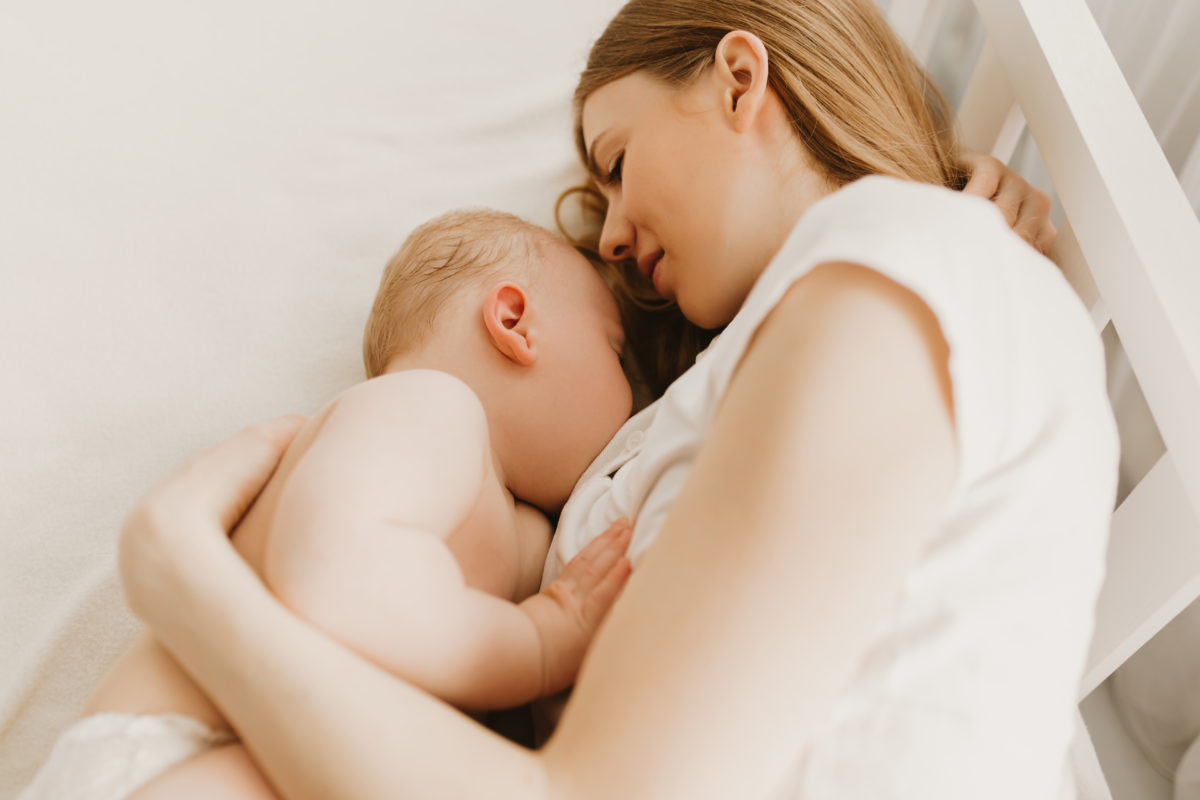Jewel Pfaffroth is just one of many mothers who have felt the pressure to breastfeed amid the COVID-19 pandemic in an effort to pass on antibodies to their children.
“Had COVID not been a thing, as soon as I found out that my body just couldn’t make enough milk, I probably would have gone straight to formula feeding,” she says. “Instead what I did was meet with a lactation specialist once a week, took a bunch of supplements and did everything single woo-woo thing that I could find that had even a tiny bit of science behind it.”

Since her son was born in April she found it difficult to produce milk and as he was underweight at his first doctor’s appointment, and she immediately had to supplement with formula. The tired mom was pumping twice a day to create less than one-tenth of what her son ate.
Desperate to find anything to minimize her chances of getting sick, Pfaffroth,34, found that she may be able to pass antibodies to her newborn through her breast milk. After he was born, she forced herself to continue to breastfeed as an additional precaution, despite already having gotten vaccinated while pregnant.
“It cost a lot of money and a lot of heartache because it’s something you’re ‘supposed to do’ for your child,” she says.
RELATED: Shawn Johnson East On Breastfeeding Baby Jett: ‘It’s HARD!’
“And there was so little information out there about breast milk and antibodies, but I was like, ‘If I don’t and my baby caught COVID, I would feel like it’s my fault.’”
Four months later, she finally decided it was taking too much of a toll on herself and her family, so she switched her baby to a full formula diet. And while preliminary data from studies indicating that breast milk might contain antibodies, not many studies on the subject have been published as the vaccine hasn’t been around for that long and the peer-review process for such studies takes time.
In late August, The Journal of Breastfeeding Medicine did publish a small study conducted by researchers at the University of Florida.
RELATED: Mandy Moore Says Breastfeeding Gus Is An ‘Experience I Will Treasure Forever’
The team took blood and breast milk samples from 21 new mothers both before and after they received the Pfizer-BioNTech and Moderna vaccines. They discovered that, after vaccination, there was a 100-fold increase of immunoglobulin A antibodies, one of the many defenses the body needs to mount against the virus.
“Basically breast milk likely provides a kind of hazard protection,” says Joseph Larkin III, a senior author of the study. However, researchers are still unsure about how strong the protection is or just how long it will last.
“We are actively working on that right now in the lab,” he says. He went on to urge how the best thing parents can do for their baby is get vaccinated themselves which will decrease the likelihood they’ll pass on COVID-19 to their child, exponentially.